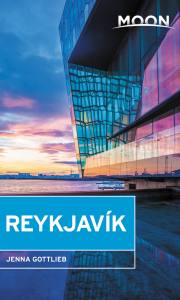Iceland
These free, printable travel maps of Iceland are divided into six regions:
- Reykjavík
- Reykjanes Peninsula and the South
- Snæfellsnes and the Westfjords
- North Iceland
- East Iceland and the Eastfjords
- The Highlands
Explore Iceland with these helpful travel maps from Moon. Ensure you have the newest travel maps from Moon by ordering the most recent edition of our travel guides to Iceland and Reykjavik.
Travel Maps of Iceland

Reykjavík
Home to two-thirds of Iceland’s population, the capital city is the cultural and social hub of the country, with an energy that is separate from the rest of the country.



Reykjanes Peninsula and the South
Outside of Reykjavík, the Reykjanes Peninsula and nature sights in South Iceland get the most traffic on the island. The Reykjanes Peninsula is home to charming fishing villages, Keflavík airport, and the Blue Lagoon, where you can take a healing dip in the milky heated water.




Snæfellsnes and the Westfjords
Called “Iceland in miniature” by locals, the Snæfellsnes Peninsula has a bit of everything: quaint fishing towns, spectacular mountains, hiking, whale-watching, and even a glacier you can walk on—Snæfellsjökull, world famous as the starting point of Jules Verne’s A Journey to the Center of the Earth. Endless coastlines, offbeat museums, and beautiful rocky landscapes await in the Westfjords. For outstanding bird-watching, visit the Látrabjarg cliffs in summer to check out thousands of nesting puffins.



North Iceland
Iceland’s ‘second city”, low-key Akureyri offers beautiful botanical gardens, first-rate hotels and restaurants, and a booming art scene. It’s the perfect place to base yourself for a visit to the north. The Mývatn region lures visitors with its birdlife-rich lake, gorgeous hiking trails, vast lava fields, enormous craters, soaring mountains, and the soothing Mývatn Nature Baths. Jökulsárgljúfur National Park offers a num- ber of treasures, including the gigantic canyon Ásbyrgi and Dettifoss, the largest waterfall in Iceland. Húsavík has some of the best whale-watching opportunities on the island, with a chance to see as many as 12 species of whale.



East Iceland and the Eastfjords
Looking for the “ice” in Iceland? Head to East Iceland, where the giant white Vatnajökull glacier will take your breath away. Drive or hike right up into the glacier’s edge in Skaftafell National Park, where you’ll see snowcapped mountains, green fields, and black-sand beaches. Hikers can scale Mount Snæfell, the highest mountain (excluding glaciers) in Iceland, with spectacular views spanning from the highlands to the sea. Weave through the unspoiled Eastfjords, where each fjord has its own charm. The east is the most remote part of the island, and summer is the only practical time to tour this region.




The Highlands
The uninhabited interior draws adventure seekers and avid hikers with its unique and unforgiving landscape. Iceland’s largest glaciers (Vatnajökull, Langjökull, and Hofskjökull) are the backdrop to the highlands, with dramatic scenery cut by wind and ice. Hike the rim of Mount Askja, a volcano with a pale blue lake-filled crater and sensational views. Askja emerges from the eerie, isolate Ódáðahraun lava field, the largest desert in Europe. You have to stay abreast of the weather forecast in the highlands—it can snow any day of the year here.


